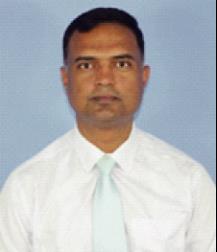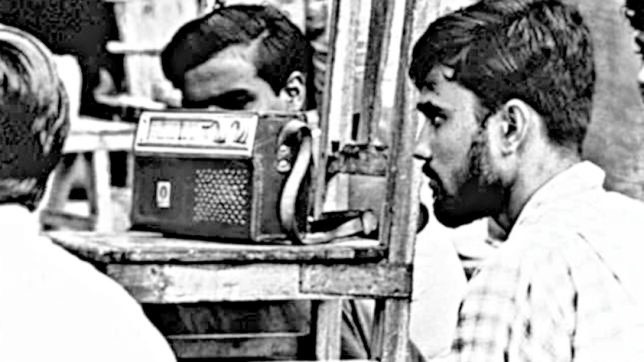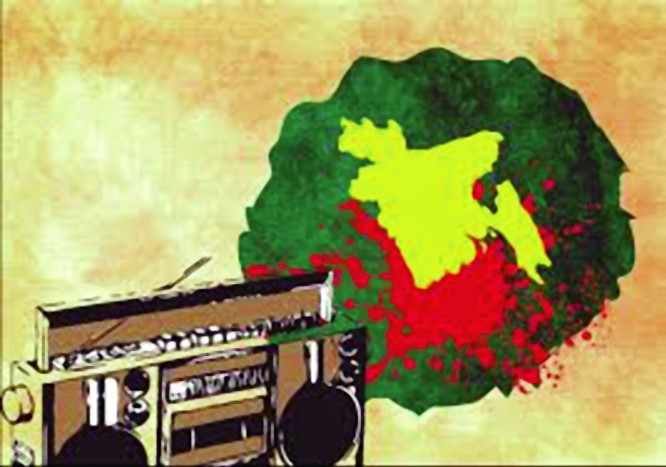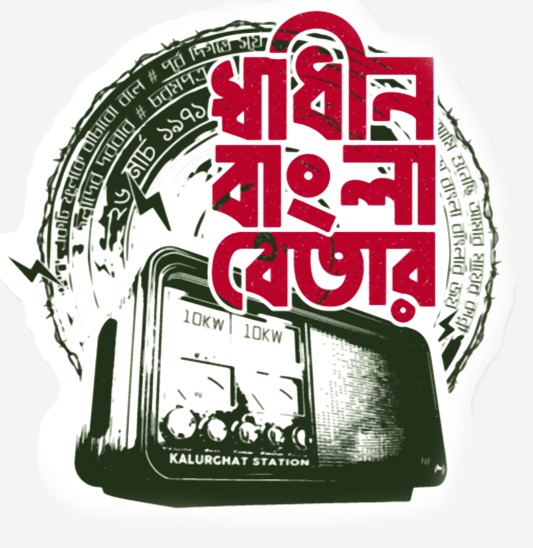By Md Serazul Islam, Serving in Bangladesh Army
Abstracts
Swadhin Bangla Betar Kendra was established by the Bangladesh government-in-exile soon after the declaration of the war of liberation. The radio station started its journey from the Kalurghat (Chittagong) transmission from where the declaration of independence and other inspirational activities were broadcasted. The station remained open from March 26 to March 30 morning until the Pakistan air force bombed the transmitter and destroyed it. On 3 April 1971, the station shifted at Ramgarh in Bandarban Hill region and started broadcasting programs from that point in the subsequent structure. The station played as the second front in the Independence War of Bangladesh. During the whole period of the Liberation War, Swadhin Bangla Betar Kendra successfully carried out its intellectual war like an organized front and aired patriotic songs which greatly inspired the freedom fighters in their relentless fight against the Pakistan-led occupation forces, war news and talk shows to boost people’s spirits. It functioned as a spiritual weapon, inspiring the freedom fighters to struggle till the very final stage. It came up the team spirit of the Bengalis while frustrating the Pakistan army. The programmes were set to convey the intended signal for commencing the operations. While the Freedom Fighters fought the Pakistani occupying forces in the battlefields, the artistes of the radio station were engaged in another kind of war, keeping the hope of freedom alive among the millions.
Introduction
Bangladesh was a portion of British India as ‘East Bengal’ till the partition of India in August 1947 and then as a province of Pakistan, East Pakistan, till 1971. Radio started functioning in Bangladesh territory in the late 1930s. After commissioning of the foremost radio station in Dhaka in 1939, there was no expansion of radio services in the next one and a half decades. After partition in 1947, the government of Pakistan also did not pay any attention to expand the radio coverage in the then East Pakistan in the foremost ten. In the early 1960s, the government got the first step to establish several radio stations across East Pakistan and by 1970 five regional stations were put up.The Dhaka station was also enlarged and its transmission capacity increased. The brilliant part of radio in Bangladesh was the character of its predecessor, Swadhin Bangla Betar Kendro operated during the liberation war of Bangladesh.
Swadhin Bangla Betar Kendra (SBBK) was the radio broadcasting centre of Bengali nationalist forces throughout the Bangladesh Liberation War in 1971. This station played a vital role in the liberation struggle, broadcasting the Declaration of Independence and increasing mental state of Bangladeshis during the war. In 1971, radio was the only media reaching to the far ends of Bangladesh. It led a propaganda campaign through the war. People were living in fear during the liberation war, the only words of inspiration and the hope of a better future were coming from Shadhin Bangla Betar Kendra. The radio station emerged as the most popular and powerful tool and the prime source of news.
Background History of Swadhin Bangla Betar Kendra
British Era
The growth of radio happened in several phases during the last 9 decades. In British India, the first experimental broadcast was produced from the rooftop of The Times of India building in Bombay on 20 August 1921.1 Kolkata was the first city to obtain permission for radio broadcasting in 1923. With the help of the Radio Club of Bengal, the first radio program from Kolkata station was broadcast on November 1923. The Bombay Radio Club started airing radio programmes in June next year. Later, programs were aired from Madras, Karachi and Rangoon establishing low-power transmitters. In 1930, Indian State Broadcasting Service was formed. 1n 1936, All India Radio was established abolishing the old. In 1939, a short wave transmitter was opened in Kolkata. Marking its inauguration, poet Rabindranath Tagore wrote a song containing the word “Aakashwani”. Later, all the radio stations in West Bengal were renamed “Aakashwani”.2 At that place were four radio stations – one each in Delhi, Kolkata, Madras and Bombay – before 1939 during British period. The British regime had decided to put up 5 more wireless stations, including at Dhaka, Peshwar, Lucknow and Karachi. Accordingly, broadcast in the Dhaka station started from a rented house on 16 December 1939. The name of the station was “All India Radio, Dhaka”. Although there was the adverse impact of war, violent and non-violent anti-British movements across India, political turmoil, communal riots and famine, the Dhaka station had sincerely tried to protect its identity as a patron of arts and culture of this region and made a great contribution in expanding Bengali arts and cultures.
Pakistan Era
After the segment in 1947, the then East Pakistan had just one radio station arranged in Dhaka. Following the Independence of Pakistan, the radio focus was renamed as Pakistan Broadcasting Service. In 1948, its name was again switched to Radio Pakistan, Dhaka. Apart from Dhaka, two 10-KW MW transmitters were put up at the port city of Chittagong and northern Rajshahi town. Subsequently, full-fledged broadcasting houses were set up there and local programs were aired apart from relaying the programs from Dhaka. From 1961, a 2-KW transmitter in Sylhet was relaying programs of Dhaka. In 1967, full-fledged stations were established at Sylhet and Rangpur with the commissioning of 10-KW/MW transmitters.
These stations broadcast their programs apart from relaying Dhaka’s programs. From Karachi, news bulletins in all major languages, including Bengali, Urdu and English, were broadcast. The radio stations in East Pakistan relayed the bulletins. At the end of the Pakistan era, although radio marked a remarkable expansion and development, but the medium was mainly used as a government propaganda machine. The radio personnel of the Dhaka station had brought all our preparations to air the speech of Bangabandhu Sheikh Mujibur Rahman directly from the venue, but the last-minute prohibition and snapping the link by the military junta deterred them from airing it. However, they recorded the speech on the spot.4 In protest of the action of the government, all staffs of radio stopped their work immediately. The government bowed down to their demand and the speech was broadcast on the succeeding forenoon. Meanwhile, before his arrest on the night, Bangabandhu Sheikh Mujibur Rahman proclaimed independence of Bangladesh through the wireless of the then East Pakistan Rifles (paramilitary force). Although the military occupied the Dhaka centre, the Chittagong station was still free. The declaration of Bangabandhu Sheikh Mujibur Rahman was aired from the Chittagong radio station on March 26 noon. Some devoted workers of radio organized them and formed the Swadhin Bangla Biplobi Betar Kendro. They broadcast a half-hour program from the transmitter situated in the suburbs of Chittagong city. The station remained open from March 26 to March 30 morning until the Pakistan air force bombed the transmitter and destroyed it.5 On 3 April 1971, they came to at Ramgarh in Bandarban Hill region and started broadcasting programs from that point in the subsequent structure. In April 1971, some radio workers and intellectual people who crossed into India began gathering in Kolkata, West Bengal and began a collaborating with the Bangladesh government-in-exile to set up a remote station. Ultimately, the Swadhin Bangla Betar Kendro started its journey on 25 May 1971 from a transmitter given by the Indian regime.
Contribution During Liberation War -1971
The SBBK played as the second front of Independence War of Bangladesh. Without having any technical facilities, the workers of SBBK made very high standard programmes which inspired thousand of freedom fighters for the independence of our motherland. The radio station played an immense role in keeping the morale high for all the freedom fighters and mass people of East Pakistan during the 9-month war.
Patriotic Song
The war of independence was not fought only with guns. A song can motivate millions of people in an instant as it has done on many occasions throughout our history like Mora Ekti Phul Ke Bachabo, Ek Shagor Rokter Binimoye and many more. It functioned as a spiritual weapon, inspiring the freedom fighters to struggle till the very final stage. The Liberation War in 1971 was an emotional period for Bangladeshis and the songs tapped a reservoir of emotions: hope, longing, loneliness, and passion. During the liberation war, patriotic songs were transmitted from Swadhin Bangla Betar Kendra, a radio broadcasting centre in Kolkata, which subsequently became a fable. The songs transmitted from the radio station worked like fire in encouraging the freedom fighters along the fields and in the minds of general people seeking liberation. During the entire time of the Liberation War, Swadhin Bangla Betar Kendra effectively completed its scholarly war like a sorted out front and circulated devoted melodies which enormously roused the political dissidents in their tenacious battle against the Pakistan-drove occupation powers, war news and television shows to lift up people’s spirit.
The voice of hope
Every family in occupied Bangladesh has a story of huddling around a rundown radio, breathlessly waiting to pick up the real word of the war trickling towards them over the airwaves. Even so, the information was provided by freedom fighters – things like strategic places of attack, the damage done, what weapons were used, etc. and which created 27 bulletins – three bits of news over three days, in three languages. The broadcast of this radio station eventually became so inseparable from the ongoing war and was important to the freedom fighters also. Moreover, many prominent intellectuals, poets and journalists could contact us and give their suggestions through this station. This Radio station functioned like a meeting place which made the world understand our urge for freedom and our cultural tradition as a country.
Against Pakistan Propaganda Campaign
The Swadhin Bangla Betar Kendro successfully engaged in a propaganda battle with the Pakistan army. While the Pakistan armed force guaranteed all was quiet in Bangladesh, the SBBK pronounced freedom powers were walking on the capital and Pakistani troopers were giving up. While the Pakistan army claimed it had crushed the will of the Bengalis, the clandestine radio station announced that the Pakistani military governor General Tikka Khan had been assassinated. While the Pakistan army claimed the Bengalis had been overcome, the clandestine radio station took that a provisional government of Bangladesh had been organized.In those beginning of the massacre, Swadhin Bangla Betar Kendro proclaimed to the world that Bengalis would not confer up, that Bengalis would battle, and that the relinquishment would not pass on futile.People around the world watched and listened.The little radio station in Kalurghat during those five crucial days in March refused to shut downs. It came up the team spirit of the Bengalis and it frustrated the Pakistan army.
Broadcasting Operational Codes for Freedom Fighters
The Operation Jackpot was a codename for three operations undertaken by Indian Army and Bengali Mukti Bahini operating under the Eastern Command of the Indian Army in East-Pakistan against the Federation of Pakistan during the climax of the Bangladesh Liberation War.6 The Mukti Bahini Naval Commandos undertook a few endeavors in the urban areas of Chittagong, Chandpur, Mongla, and the Narayanganj District against the working joined powers of the Pakistan Soldiers, Pakistan Marines, Pakistan Navy SEAL Teams, and the East Pakistan Security Forces the evening of 15 August of 1971. A pair of songs was played in India Radio (Akashbani) at specific times to convey the intended signal for commencing the operations.7 The first song (Amar putul ajke prothom jabe shoshurbari) was played on 13 August, the second song (Ami tomay joto shuniyechilem gan tar boodle chainikono dan)on 14 August.
Conclusion
During the entire time of the Liberation War, Swadhin Bangla Betar Kendra effectively did its scholarly war like a sorted out front and publicized devoted melodies which enormously enlivened the political dissidents in their tireless battle against the Pakistan-drove occupation powers, war news and television show to lift individuals’ spirits. Perhaps its greatest accomplishment was to turn the medium of radio from an official tool of governing into a public instrument of communication, starting across the fences of occupation. They used to broadcast programs in Bangla, English and Urdu. Dramas, musical programs and talk shows were part of the regular transmission. During the Liberation War, Swadhin Bangla Betar Kendra played a very effective and important role. While the Freedom Fighters fought the Pakistani occupying forces in the battlefields, the artistes of the radio station were engaged in another kind of war — keeping the hope of freedom alive among the millions.
During the period of Liberation War of Bangladesh, media supported mass sentiments. They aired patriotic songs and talk shows which inspired mass people of East Pakistan. During the time spent accomplishing our freedom by trouncing the monstrosities of the Pakistani military powers, the wartime broadcasting station ” Swadhin Bangla Betar Kendra” assumed an essential job in expanding the psychological condition of the entire Bengali country by advising us how well we are progressing towards the victory. The radio station reached its peak during the liberation war being acclaimed as the stool pigeon of war news updates through ‘Chorom Potro’. On those occasions when radio was the main media coming to the most distant parts of our country, Bangla Betar Kendra turned as the speaker of the Bangladesh government in a state of banishment. It led the nationalist campaign throughout the war in gearing up our freedom fighters moral and also mobilizing world opinion in favour of Bangladesh. During this difficult time, they realised that the All India Radio had been supporting the Bengali cause and playing pro-Bangladesh broadcast.
Notes:
1. Keval J Kumar, Mass Communication in India, Jaico Publishing House, Mumbai, 1981, p-66
2. ChattapadhayaPartha Dr, Gana Japan (Mass Communication), West Bengal Book Board, (1982) p-214
3. Rahman Mahmudur, Kazi, 25 years of Bangladesh Betar, Niriksha, a research quarterly of Press Institute of Bangladesh, special issue marking the 25 Independence day of Bangladesh, December 1996, p-18
4. Kumar J Keval, Mass Communication in India, Jaico Publishing House, Mumbai, 1981, p-66
5. Mohammad Belal, Swadhin Bangla BetarKendro, December 1988
6. Surrender at Dacca: Birth of A Nation, Jacob, Lt. Gen. J. F. R., p. 90
7. A Tale of Millions, Islam, Major Rafiqul Bir Uttam, p. 263–65
8. Muktijudhdher Rachana Shomogra, Mahmud, Sezan, p. 61
BIBLIOGRAPHY
Books and Papers:
1. Khan Ashraf-uz-Zaman, Desh, Betar O Jiban (Country, Radio and Life), Betar Bangla, a regular publication of BB, Victory Day Issue, December-January 2003-2004.
2. Kumar J Keval, Mass Communication in India, Jaico Publishing House, Mumbai, 1981.
3. 25 years of Bangladesh Betar, Niriksha, a research quarterly of Press Institute of Bangladesh, special issue marking the 25 Independence day of Bangladesh, December 1996.
4. Mohammad Belal, Swadhin Bangla BetarKendro, December 1988.
5. Keval J Kumar, Mass Communication in India, Jaico Publishing House, Mumbai, 1981.
6. ChattapadhayaPartha Dr, GanaJnapan (Mass Communication), West Bengal Book Board, (1982).
7. Rahman Mahmudur, Kazi, 25 years of Bangladesh Betar, Niriksha, a research quarterly of Press Institute of Bangladesh, special issue marking the 25 Independence day of Bangladesh, December 1996.
8. Surrender at Dacca: Birth of A Nation, Jacob, Lt. Gen. J. F. R.
9. A Tale of Millions, Islam, Major Rafiqul Bir Uttam,

Md Serazul Islam was born on 10 Oct 1982. He is serving in Bangladesh Army. He received the degree in Master of Science in Military Studies from Bangladesh University of Professionals. Find him here: mdseraz@gmail.com



